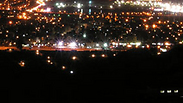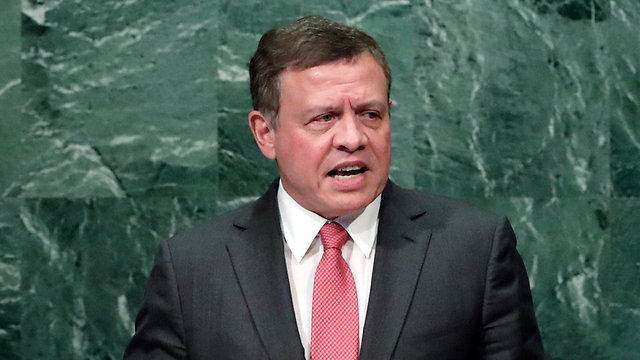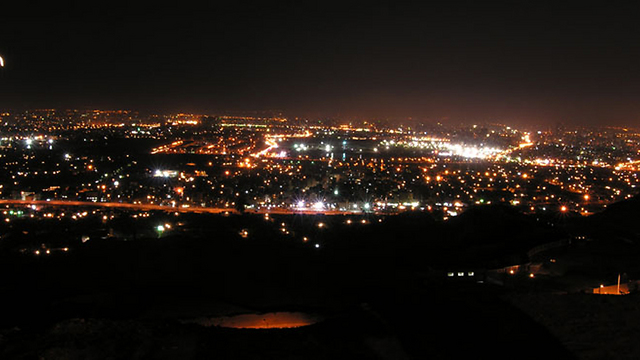
The wise king of Jordan
Analysis: Against all odds, Jordanian King Abdullah has managed to ward off revolution and prevent his rule from collapsing. Had he listened to the TV experts and had he not given Israel a foothold in the Kingdom, the Jordanian story could have ended in a disaster.
The deal, under which Israel will supply natural gas to Jordan for 15 years, andJordan pay $10 billion, was signed in the lowest-profile ceremony possible; shortly after the parliament elections and before the 130 happy election winners pledged allegiance to the king and to their positions. Whoever set the date, in full agreement with Jerusalem, made sure to keep from having a debate which would have ended – as it did two years ago – in yelling and cursing and with an overwhelming majority voting against the agreement.
Protestors have taken to the streets of Amman four times, carrying signs linking between the gas and the occupation, and linking between Jordanian payments and IDF weapon purchase deals alongside settlement construction.
The main thing we learned from these protests is the Jordanian loathing which has been going on for 22 years, ever since the Hashemite Kingdom signed a peace agreement with Israel. The rage marches were led by Ali Abu Sukkar, the Islamist running intimidation campaigns against anyone suspected of or caught cooperating with the “Zionist enemy.”
On the other side, the information minister was sent to inform the public that the agreement was signed between private companies, that King Abdullah and his government had no intention of abandoning the Palestinians, and that the agreement took the small kingdom’s poor economic situation into consideration.
Between the lines however, one could detect the real frustration: Iraq, Saudi Arabia and Qatar are evading it, and Egypt is no longer a partner for running the gas pipes due to a series of terror attacks in Sinai. Winter is coming, gas consumption will sharply increase, and whoever wants to keep things calm in the kingdom must provide the most prudent solution.
The Jordanians, who are aware of laws banning protests against the king, found a way to make headlines about the issue: They turned the lights out in Amman for an hour and posted pictures on social media. The steam was let out. The king did not intervene. Whoever wants to continue sitting in the dark is free to do so.
We haven’t even noticed that Abdullah has been in power for 17 years now. He is 54 years old and is wisely growing into the position. His latest appearance, in an interview to CBS, was sound, fascinating and exposed a current state of affairs which speaks for itself; There are nine million people living in Jordan today - half of which are Palestinians - and two million refugees taken in from Iraq and Syria.
The Hashemite royal family’s tradition of hospitality has led to a jump in apartment prices, refugees have taken over the labor market, schools are overcrowded, and there are major water and electricity shortages.
Another 100,000 refugees from Syria - a number which is expected to grow - recently set up camp along the closed border. Jordan is transferring food and medicine via crane to these people on the other side.
What does Abdullah see when he wakes up in the morning? There is no reason to envy him. In the east – Iraq - ISIS is constantly trying to carry out terror attacks in a bid to bring him down. In the north, - Syria - there is a civil war with no end on the horizon and it is unclear who – if anyone – will take over the country. In the south, he is monitoring Saudi Arabia’s wars against Iran. In the West, the continuing situation in the Israeli-Palestinian conflict has difficult consequences inside Jordan.
More than anything else, Abdullah finds it important to show the difference between the well-informed people behind the air conditioners in distant Washington and his own people on the ground. So far, he has managed against all odds to ward off a revolution and prevent his rule from collapsing. Had he listened to the experts on TV, had he not meddled behind the scenes, had he not brought Israel deep into the picture and given it a foothold, the Jordanian story could have ended in a disaster.












